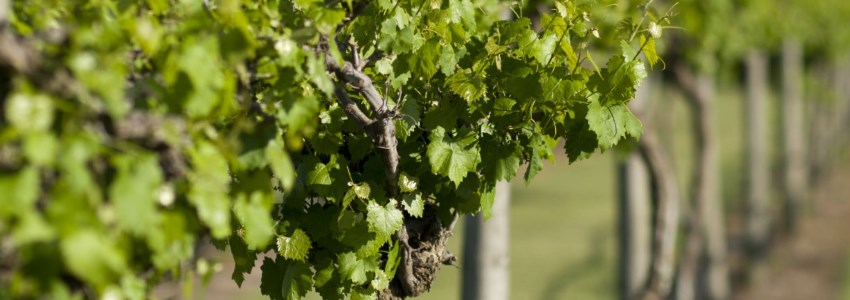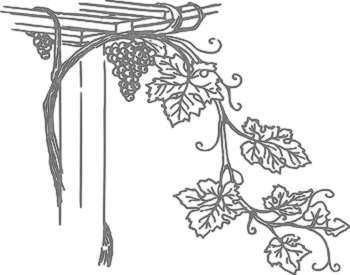Scuppernong Grape


Sweet and distinctive
Scuppernong is a bronze coloured grape and got its name from where it was first seen, along the Scuppernong River in North Carolina. The name Scuppernong was then used to to refer to any bronze muscadine grape, though it is only one of a variety of muscadines.
The inner flesh of a Scuppernong grape is rich and thick, with an intense sweetness, though slightly less sweet than the purple coloured muscadines. Scuppernong grapes have tough skins that taste a little like plums. The sweet and distinctive taste of the Scuppernong grape makes it a favourite for making not just wine, but also jelly and juice.
Scuppernong vs. Muscardine wines
Typically the wineries in Northern Carolina produce very sweet wines from Scuppernong grapes, though it is possible to produce many dry muscadine wines each harvest. There are currently more than 400 varieties of Muscardine that grow in the Southern United States, of which the Scuppernong is just one. Another is named Carlos, a self-pollinating bronze variety that is very similar to the Scuppernong. Magnolia is also self-pollinating and then there is Scarlet, Cowart, Noble, Nesbitt and others that are close to the Scuppernong grape. The thick skin of the Scuppernong grapes mean they are not as simple to crush as other grapes, however it is easy to remove the flesh from the skin once the skin is broken.


Health benefits of the Scuppernong grape
Muscadine grapes have a number of health benefits, but of all the cultivars, Scuppernong grapes are said to offer superior benefits because they contain six times the level of resveratrol than other grapes. Resveratrol is an antibiotic produced by a plant to help protect it from infections, but in humans has been shown to have multiple benefits including improved heart health and the potential to extend lifespan to a healthy old age. They are also the only grape with ellagic acid which scientists have found slows both the forming and the growth of fat cells. Ellagic acid is also found, though in much lower quantities in raspberries, blackberries, pomegranates, green tea and walnuts.
Muscadines are also unique in the grape world as they have an extra pair of chromosomes to all other grapes. This extra chromosome pair helps muscadines survive in climates where it would be impossible for European vines to survive, but it also gives the grapes more antioxidants and nutrients than any other grape.
In the US, the National Institutes of Health (NIH) and the National Cancer Institute (NCI) sponsored laboratory research on muscadine grape skins and results showed the grape skins significantly inhibited growth of prostate cancer cells in very early stages, whilst leaving normal cells to continue growing. An American Association of Cancer Research later tested muscadine grape seed extracts and muscadine grape skin extracts on various cancers and also found cancer growth reductions above 80 percent in breast, colon and lung cancers.
